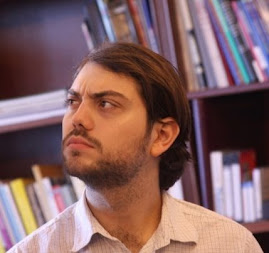 Ezra kindly pointed out that my last post sounded like I'd died. If any of you have been maintaining a vigil on my behalf, you have my thanks and reprieve. I am in fact, so to speak, resurrected.
Ezra kindly pointed out that my last post sounded like I'd died. If any of you have been maintaining a vigil on my behalf, you have my thanks and reprieve. I am in fact, so to speak, resurrected.In fact, I'm one of the last people not to disappear. Most of the other ETA's have returned to the land & home of the free & brave, but we are pushing the envelope of sanity! Ellie, Zoe, Len, and Joe -- far from the madding crowd. Though whom we are tying to woo I don't know. Maybe it is an experiment in post-modern reason. I feel like leaving therefore I should stay. Curse you, emotional tyranny!
But at this point we are the stayers. We have stayed. And so I bear that mantle lightly as I go -- haunting Anna and Gwynne's vacant apartment with its excellent number of rooms for reading. Also Gwynne's Norton Anthology of Postmodern Fiction, which has many excellent read rooms.
We have been fortuitously supplied with the kawanest of kawans, Mariah, whose love of fish exceeds even the Malays. She has a proper Fulbright with a lab and everything . . . but still must rely on her rapidly developing Malaydar to figure out whose bullshit is hitting which fans. Bravo Mariah, ye defender of scientific integrity, ye champion of proper lab safety.
As for them wot is departed -- you have assumed the celebrity of America in our eyes at last. Graduate schools, burritos and other such extravagant joys are foreign exoticisms. I can't decide whether to protest your over rich pie or sail to America on a leaky freighter to have my own fat slice. Have Malaysia and its troubles become quaint in the hush of law and the cool of aesthetics?
It is certainly a hot, sleepy country. A contented country with absurdly violent dangers. The snakes and centipedes have gathered the malice abandoned by humans. The tigers and crocs claim whatever stores of efficiency the land contains. Even the mosquitoes have monopolized subtle infection and deceit. What place remains for human evil? No, Malaysia is primarily a country for mischief.
I too have grown mischievous -- more prone to slack and harbor small suspicions. But perhaps my heart arrived stained with a darker evil. If so, the jungle has claimed it. Certainly I struggled and continue to struggle. Certainly parts of this culture disgust me. But if so, I do not fear them; I feel they are that sophisticated sort of play Malays call belief.
Even my take of the American election, certainly the most jaded process in history, has become totally benign. And I wonder: can I ever thrive in the West so bemused and so drained of cynicism?
